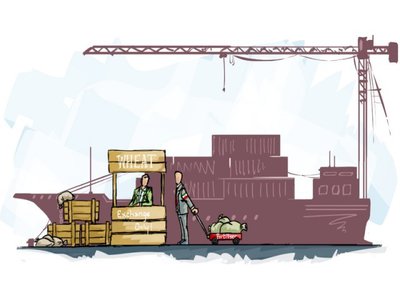6 Dec 2012
Seminars,
12:15 - 13:45,
Anna Nussbaum Auditorium, WTI,
Bern
Elsig, Manfred
The Power to Know is the Power to Affect. Tariff Concessions in the FTA between the EU and Korea
Brown Bag Seminar by Prof. Bart Kerremans, Institute for International and European Policy (IIEB) of the Katholieke Universiteit Leuven (KU Leuven) in Belgium and Johan Adriaensen, Phd candidate at the University of Leuven (Belgium)
Abstract
The free trade agreement that the European Union and South Korea concluded in 2009 (the FTA KOREU) entered into force on 1 July 2011 and attracted a lot of attention from EU scholars as this agreement has been presented by the European Commission as the first of a new generation of such FTAs. It also generated a lot of curiosity among IPE scholars. The agreement was indeed negotiated and concluded at a time of raging debates about the international political economy of negotiations on free trade agreements (as compared with trade negotiations in a multilateral setting like the WTO), of trade policymaking in the EU, and of trade policymaking in general. In these debates, emphasis tends to be put on the impact of highly politicised sectors and their interests in the trade negotiations. Consequently, when it comes to the FTA KOREU, most attention has been dedicated to the debates about automobiles, services, and chemicals. This skewed attention has created a bias in which a small group of products gets almost all the analytical attention to the detriment of sectors that jointly (and often separately) represent the vast majority of trade concessions made. Can a closer look at all trade commitments in an FTA teach us something about the dynamics of trade policymaking in such FTAs, and not just for the most politicised issues? Can it help us to understand what matters in the case of the non-politicised issues, or non-politicised trade policymaking in general? This presentation tries to provide a clue in that sense. It will do so by paying attention to the difference in the pattern of trade liberalisation (and protection) across products and sectors in the FTA KOREU, particularly between the two parties to the agreement: the EU and South Korea. The presentation aims at explaining these differences by linking them to the competitiveness of products in the global market and in the markets of the two parties.
Biography of the speakers
Bart Kerremans is Professor of International Political Economy and American Politics at the Institute for International and European Policy (IIEB) of the Katholieke Universiteit Leuven (KU Leuven) in Belgium. He got his PhD in Political Science at the University of Antwerp in 1994 and since 1996 has been institutionally affiliated with the KU Leuven. His research focuses on the political economy of trade policymaking, particularly in the context of the World Trade Organization and with a focus on the European Union and the United States. His publications include articles in Comparative Political Studies, Governance, the Journal of European Public Policy, West European Politics, European Foreign Affairs Review, and the Journal of European Integration. He is also author of several books, two of which (published in Dutch) are on American Government. The second of these (Amerika Doorgelicht) was published in 2009.
Johan Adriaensen is a PhD candidate at the University of Leuven (Belgium). He is also a junior member of the Leuven Centre for Global Governance Studies. His doctoral research focuses on the role of Member States’ trade administrations in the negotiation of EU Free Trade Agreements. His research interests include international political economy, comparative public administration, European integration, (quantitative) methodology and scholarship on teaching and learning.
Further info
Presentation part a & c, PDF
Presentation part b, PDF


